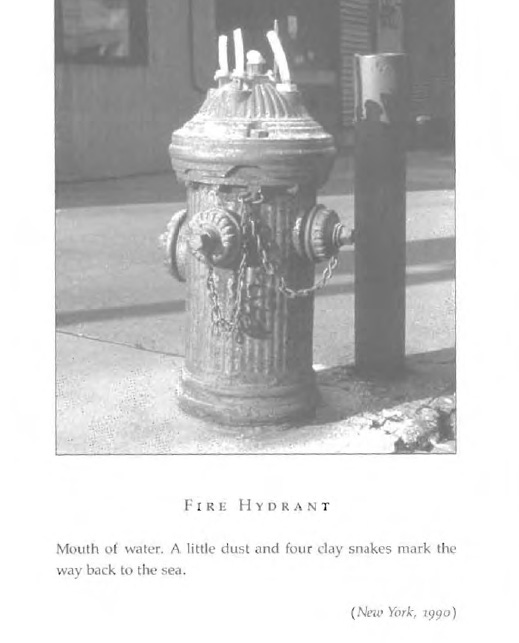Hi friends,
Happy Monday. Fun fact for you — cut tulips can still open and close in response to heat and light.
Isn’t that something?
Also, check out Rachel’s poem response to Prompt #4, “patroclus,” a piece about love and grieving. Some of my favorite phrases: “dragged across the field / half of me vanishing,” “echoing a whiplash laugh.” The words “drag, vanish, echo, whiplash” are verbs that resist fully moving on, which feels pretty true to the (e)motion of grief. Thanks again to everyone who’s been sticking around for our calls and responses. We love reading your poems— pls send us more!
Here’s the prompt for this week.
As Steph mentioned, writing environmental poems for an environmental writing seminar was hard for me. What I ended up with became about smallness. Paradoxically, focusing on small things allowed me to access perspectives that felt more true and able to approach things as large and complex as the environment. Putting things into relief, relative to each other, helped to better draw out their qualities. This week, I want to engage with size & scale in writing, whether that be zooming in & out, juxtaposing big & small, etc.
Prompt: Write about smallness. By smallness, I mean not only physically small, but also small in time, in claim, in understanding. In what ways is what’s small simultaneously lacking and/or full of the essence of what’s bigger? In what ways is a part related to a whole? Some directions you could take this prompt:
Zoom in on something small — a detail, a moment, a feeling — so that we see it up close. Up close, things look different.
Juxtapose scales. Look for similarities and differences between what’s small and what’s bigger.
Use smallness as an entry point, a way to access the larger (and maybe more unknowable, unspeakable) thing — environment, history, ocean, love, truth, self, universe, trauma, knowing, meaning of life, etc.
In Cecilia Vicuna’s Ten Metaphors in Space, a fire hydrant is both small and big— a little dust, a way to the sea.
In “Sidewalk Forests,” a small weed is also a forest, an altar, an air vent, a pasture.
In her poem,“Science,” Aracelis Girmay writes:
“We were trying to refind the eye & brain
we had when we were pelicans,
But the wind came down, it had ten hands,
it had more mouths & took & took us far out to sea.
…
It took us apart with its blue hands, this piece, this piece--
… It said,
You have been this small before. Though you can’t really
remember it, you were not always, always tall,
small, small thing, plural thing—”
There are size shifts and transformations in this poem, not just literally / figuratively, but also in perspective. The only constants in this poem seem to be the images of shifting forms. From the opening lines, we “were pelicans,” but are no longer. The wind becomes a being with “ten hands” and “more mouths.” This transformed being then proceeds to break us into smaller forms. Physical transformation becomes ultimately a transformation of perspective. We are reminded of once having been small, and there is a simple significance to that fact.
Here’s something else I’ve been thinking through. Smallness is an idea of reduction. It’s in opposition to what’s big, or grand, or full and complete. Maybe as a result, small feels frivolous, useless, common, dull, or conveniently easy. But also, what William Blake writes in “Auguries of Innocence”:
“To see a World in a Grain of Sand
And a Heaven in a Wild Flower
Hold Infinity in the palm of your hand
And Eternity in an hour”
Small can be a way to approach the unknowable. This quote from Mary Ruefle’s essay, “Madness, Rack, and Honey,” helps characterize the paradox of knowing that I’m getting at with the idea of small vs big & incomplete vs complete understanding:
“One day you think like microbiologist Carl Woese, who uses this metaphor when speaking of the difficulties in distinguishing between microbes:
‘Imagine going out into the countryside and not being able to tell a snake from a cow from a mouse from a blade of grass. That was the level of our ignorance.’
Another day you think like Blake or Whitman and say:
‘Imagine going out into the countryside and not being able to tell a snake from a cow from a mouse from a blade of grass. That was the level of our wisdom.’”
I’m curious about the ways smallness and not knowing is ignorance, and in what ways it’s a form of wisdom.
You can take this prompt and use it in whatever way you choose. Try taking a small moment and seeing what happens if you extend it to be a day long, a year long. Play with scale. What if you gave something big the characteristics of something small? What if you did the reverse?
I hope the many-mouthed wind inspires you this week. If I find anything interesting, I’ll drop it in the comments. Hope to see you there.
xoxo,
Catherine





a lil poem (about fish, of course) inspired by the idea of smallness letting you in to a stranger's life or experience. title wip.
Begin with the halibut
resting on the butcher’s block.
Begin with the scissors he will use
to carefully snip off the fins. Better yet, begin
with the small cut the butcher makes behind the head
in a curve to lift out the gills, hooking his finger
to pull out and shake loose the breathing
machine. What precision. What tender
permission the cut grants the butcher, who,
though he has touched fish like this
hundreds of times before, knows
it is important, this way of restoring
something like life to the chilled body,
the necessary way his blade loves
everything it touches.